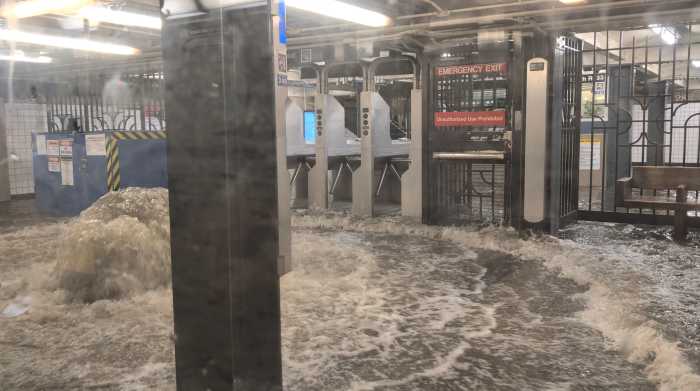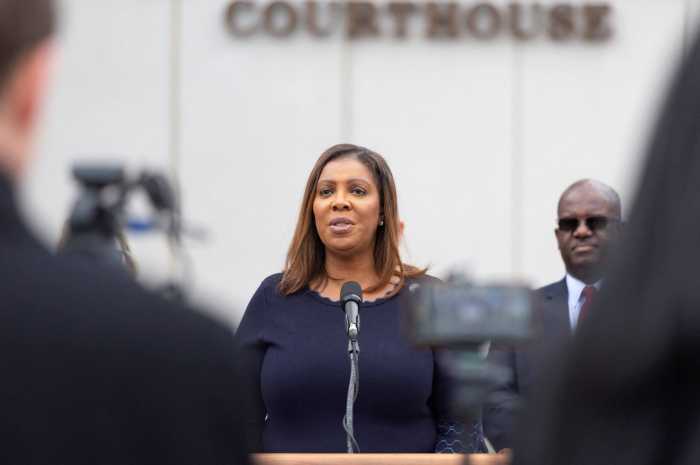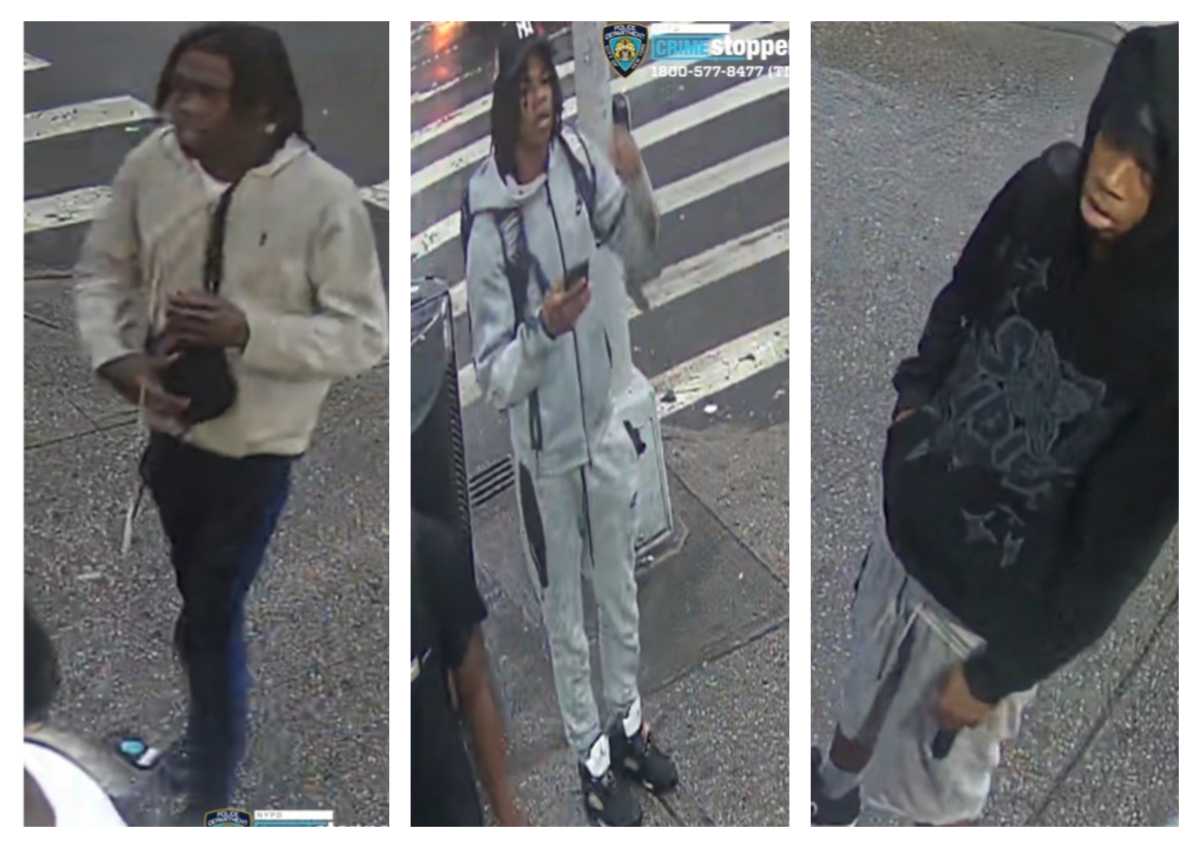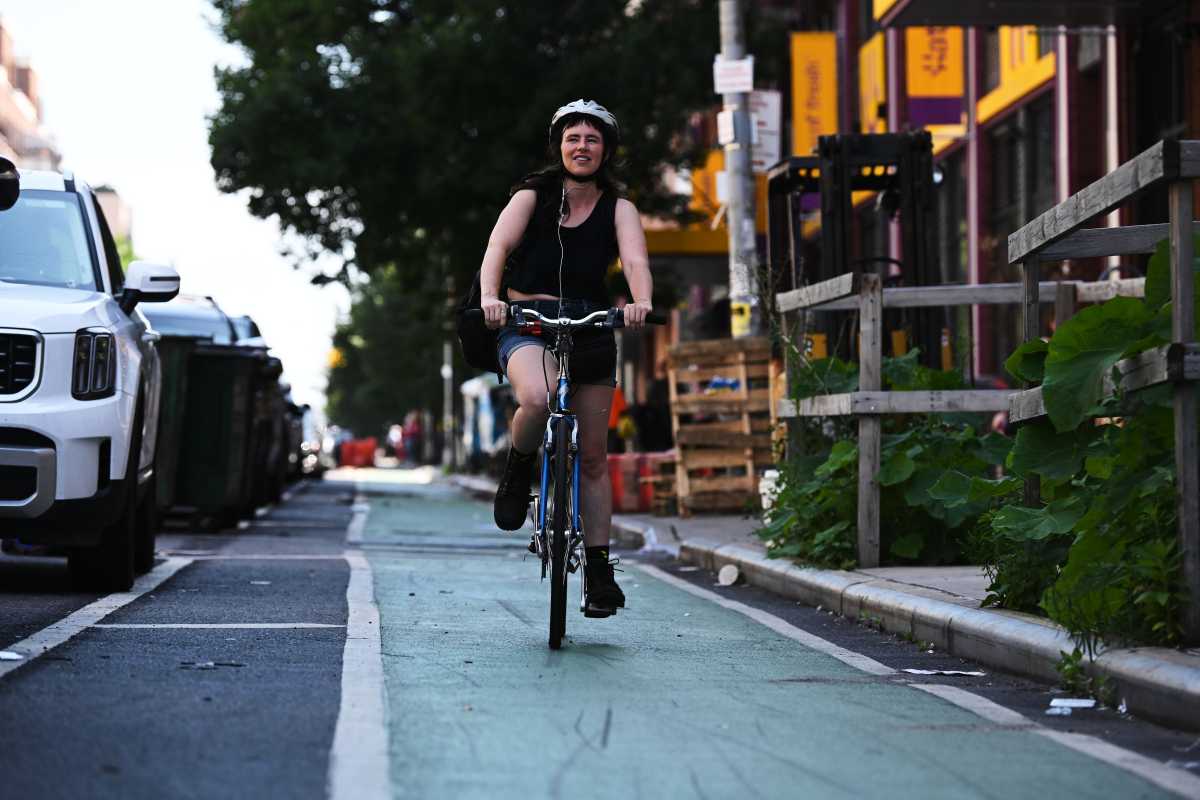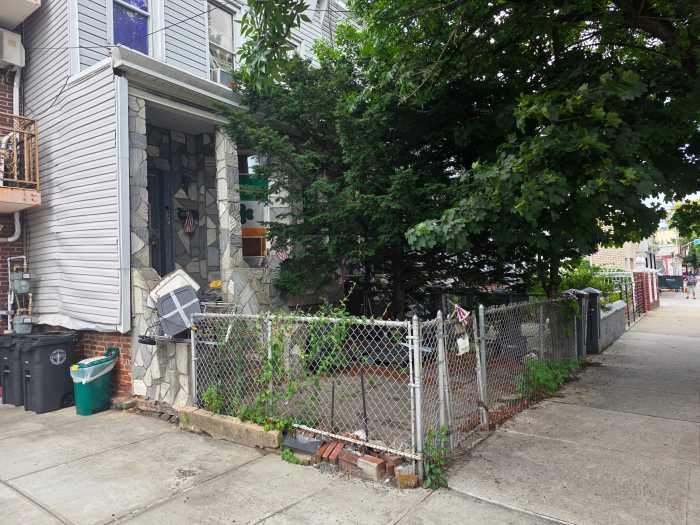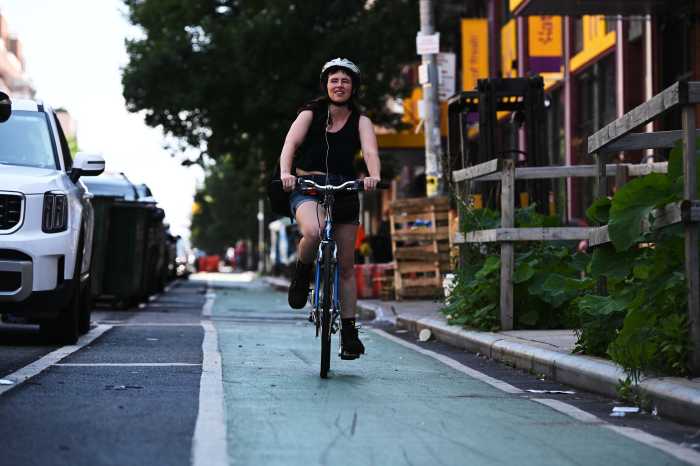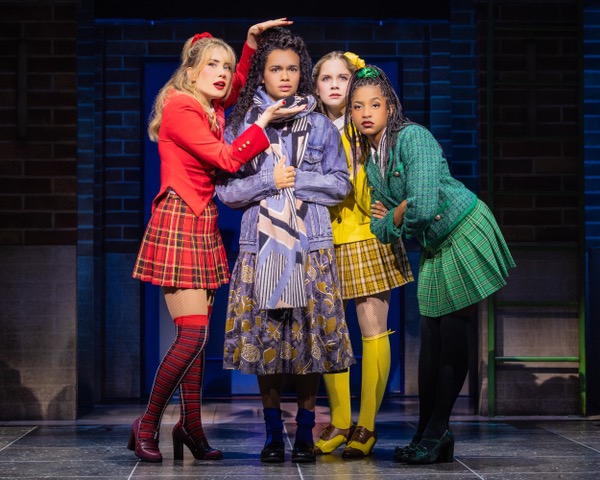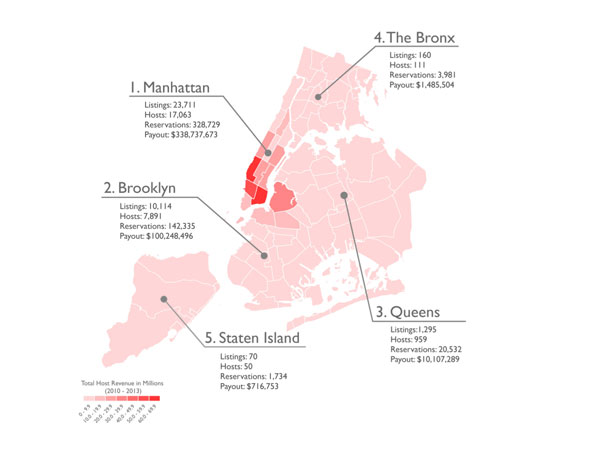
BY ZACH WILLIAMS | The Village and surrounding neighborhoods host the largest concentration of Airbnb rentals citywide, according to a new report by state Attorney General Eric Schneiderman.
Nearly three-quarters of rental units listed through the rapidly growing online “home-sharing” service violate state or local laws, according to the Oct. 16 report from the attorney general.
The problem is particularly acute in the areas roughly corresponding to Community Boards 2, 3 and 4, where Airbnb did 40 percent — or $187 million worth — of its New York City business between January 2010 and June 2014, the report states.
In comparison, Airbnb operators in Queens, Staten Island and Bronx generated just $12 million during that same period.
The attorney general also announced a joint enforcement initiative with the city to investigate and shut down illegal hotels.
“We must ensure that, as online marketplaces revolutionize the way we live, laws designed to promote safety and quality of life are not forsaken under the pretext of innovation,” Schneiderman said in the statement.
The report represents the first time that an analysis of Airbnb user data has been made publicly available. Opponents of the San Francisco-based start-up have accused the company of enabling illegal hotels, while its supporters say Airbnb helps regular New Yorkers make ends meet in an increasingly expensive city.
“The report is a treasure trove of information about the rampant nature of illegal hotel operators,” state Senator Brad Hoylman said in an interview. “I’m shocked at how widespread [the problem] is.”
But Nick Papas, an Airbnb spokesperson, said in a statement that the report failed to exclude about 2,000 questionable listings that were subsequently removed from the company’s Web site. Local housing regulations further complicate the issue, Papas added.
“Every single home, apartment, co-op and living space in New York is subject to a myriad of rules,” he said. “So it’s impossible to make this kind of blanket statement about listings. That kind of uncertainty and lack of clarity is exactly why we’re advocating for clear, fair rules for home-sharing.”
The state Multiple Dwelling Law prohibits rentals of less than 30 days within dedicated residential buildings. City taxes are also due in many circumstances, though few Airbnb hosts pay them, according to the report. The city missed out on about $33 million in tax revenue during the studied period of time.
In all, 72 percent of Airbnb listings in New York City are illegal, claims the report, which analyzed 493,322 transactions made through the company’s online site. Just 6 percent of operators accounted for 36 percent of the total revenue.
About 4,600 units were rented in 2013 for at least three months out of the year, while 2,000 units were rented for at least 182 days. A majority of such units were in popular neighborhoods, such as the East Village and Lower East Side, Chelsea, Hell’s Kitchen, the West Village and Williamsburg.
A dozen buildings in those neighborhoods operated as “de facto hotels,” meaning that 60 percent or more of their units were occupied for at least half the year as short-term private rentals, according to the A.G.’s report.
The report, though, could not determine the extent to which such activities affected housing units subject to rent regulation because Airbnb rendered the data anonymous before turning it over to the attorney general.
Schneiderman began investigating Airbnb in late 2013. He reached an agreement with Airbnb this May after he issued a subpoena for the company’s user data. On May 20, Airbnb turned over the information after withholding user names and apartment numbers.
As the investigation continued, Airbnb began an ad campaign, prominently displayed in New York City subway stations and subway cars, featuring cheery New Yorkers benefitting from the Web site. Local politicians and neighborhood groups countered by forming the coalition Share Better last month. Share Better’s advertisements portray a company responsible for many an unhappy traveling experience.
Politicians were quick to praise Schneiderman, as well as urge him and Mayor de Blasio to crack down even harder on Airbnb.
“Attorney General Schneiderman should be thanked for revealing the truth about Airbnb,” Borough President Gale Brewer said on Oct. 16. “Allowing thousands of instances of illegal activity until they get caught, and then arguing that the laws should be changed, reveals Airbnb’s arrogance. And no amount of expensive P.R. doublespeak can hide it.”
The day after the report came out, the de Blasio administration entered the fray by filing suit, alleging building and fire code violations against the owners of two buildings, one on W. 31st St. and the other at E. 13th St. and Fifth Ave., where there are Airbnb rentals, the Daily News reported.



